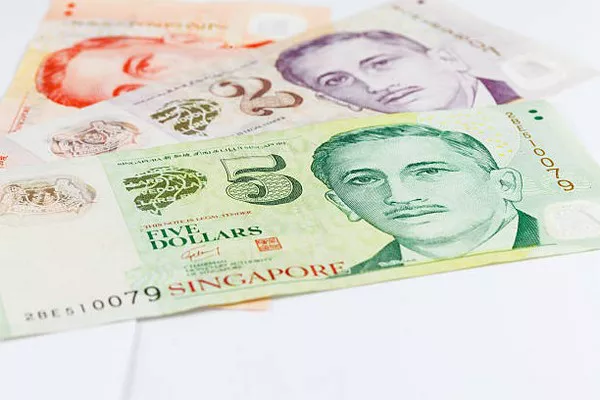Trading in the foreign exchange (forex) market offers a vast array of opportunities, with currencies from around the world exchanging hands in a dynamic and interconnected environment. Among the currencies actively traded, the Singapore Dollar (SGD) stands out as a prominent player, reflecting the economic strength and stability of the island nation. In this article, we delve into the intricacies of trading the Singapore Dollar, exploring its key features, factors influencing its value, and essential considerations for traders looking to navigate the SGD market successfully.
Understanding the Singapore Dollar (SGD):
Introduction to the SGD:
The Singapore Dollar, denoted as SGD, is the official currency of the Republic of Singapore. Issued by the Monetary Authority of Singapore (MAS), the SGD has become an integral part of global forex markets due to Singapore’s strategic economic position, financial prowess, and stability.
Symbol and Code:
The symbol for the Singapore Dollar is “$,” often written as “S$” to distinguish it from other dollar-denominated currencies. The currency code SGD is recognized globally in forex trading platforms, making it easily identifiable in financial markets.
Pegged Managed Float:
The SGD operates on a managed float exchange rate system. While it is not pegged to a specific currency, the MAS manages its value within an undisclosed policy band. This approach allows Singapore to balance economic considerations and maintain stability in the SGD’s exchange rate.
Factors Influencing the SGD’s Value:
Economic Indicators:
Economic indicators play a crucial role in influencing the value of the SGD. Key factors include Singapore’s GDP growth, employment rates, inflation, and trade balances. Traders closely monitor these indicators for insights into the country’s economic health, which can impact the SGD’s performance.
Interest Rates:
The interest rate differentials between Singapore and other major economies influence the attractiveness of the SGD to investors. Higher interest rates in Singapore relative to other countries may attract capital inflows, potentially strengthening the SGD.
Global Economic Conditions:
Singapore’s open economy is highly influenced by global economic conditions. Events such as geopolitical tensions, trade disputes, and economic downturns in major trading partners can affect the SGD’s value. Traders need to stay informed about global developments that may impact Singapore’s economic outlook.
Government Interventions:
The MAS occasionally intervenes in the forex market to manage excessive volatility and ensure the SGD’s stability. Traders should be mindful of any announcements or actions by the MAS, as they can impact market sentiment and the SGD’s value.
Market Sentiment:
Like any currency, market sentiment plays a crucial role in the SGD’s fluctuations. Traders’ perceptions of Singapore’s economic prospects, geopolitical stability, and global economic trends can influence buying and selling decisions, affecting the SGD’s value.
Trading Considerations for the SGD:
Understand the Economic Calendar:
Traders should closely follow Singapore’s economic calendar, which includes key releases such as GDP reports, employment data, and inflation figures. These releases can have a significant impact on the SGD’s value and may present trading opportunities.
Monitor Interest Rate Decisions:
The MAS periodically announces interest rate decisions that can impact the SGD. Traders should stay informed about these announcements and consider the potential effects on interest rate differentials between Singapore and other currencies.
Stay Updated on Global Developments:
Given Singapore’s reliance on global trade, traders should monitor international news and events that may affect the country’s economic conditions. Developments such as trade agreements, geopolitical tensions, and global economic trends can influence the SGD.
Utilize Technical Analysis:
Technical analysis involves studying historical price charts and patterns to identify potential future price movements. Traders can use technical analysis tools to analyze SGD price charts and make informed decisions based on historical price trends and patterns.
Risk Management Strategies:
Trading always involves an element of risk. Implementing risk management strategies, such as setting stop-loss orders and position sizing, is crucial to protect capital. Traders should define their risk tolerance and adhere to risk management principles when trading the SGD.
Leverage with Caution:
While leverage can amplify profits, it also magnifies potential losses. Traders using leverage should exercise caution and be aware of the risks involved. It’s essential to have a clear understanding of the impact of leverage on trading positions.
Diversify Your Portfolio:
Diversification involves spreading investments acrossdifferent assets to reduce risk. Traders can apply this principle by diversifying their currency portfolios, including exposure to other major currencies alongside the SGD.
Continuous Learning:
The forex market is dynamic, and staying informed about market trends, trading strategies, and economic developments is essential for success. Traders should engage in continuous learning, leverage educational resources, and stay updated on industry trends.
See Also: 9 Reasons Why the Singapore Dollar Is Stronger
Conclusion:
Trading the Singapore Dollar offers an exciting opportunity for forex market participants to engage with a currency that reflects the strength and resilience of Singapore’s economy. Understanding the factors influencing the SGD’s value, staying informed about economic indicators, and implementing effective trading strategies are essential for navigating the intricacies of the SGD market.
As traders venture into SGD trading, they become part of a global financial ecosystem where economic conditions, geopolitical events, and market sentiment converge. With a comprehensive understanding of the SGD’s dynamics and a commitment to continuous learning, traders can position themselves to make informed decisions and navigate the challenges and opportunities presented by the Singapore Dollar in the ever-evolving world of forex trading.


